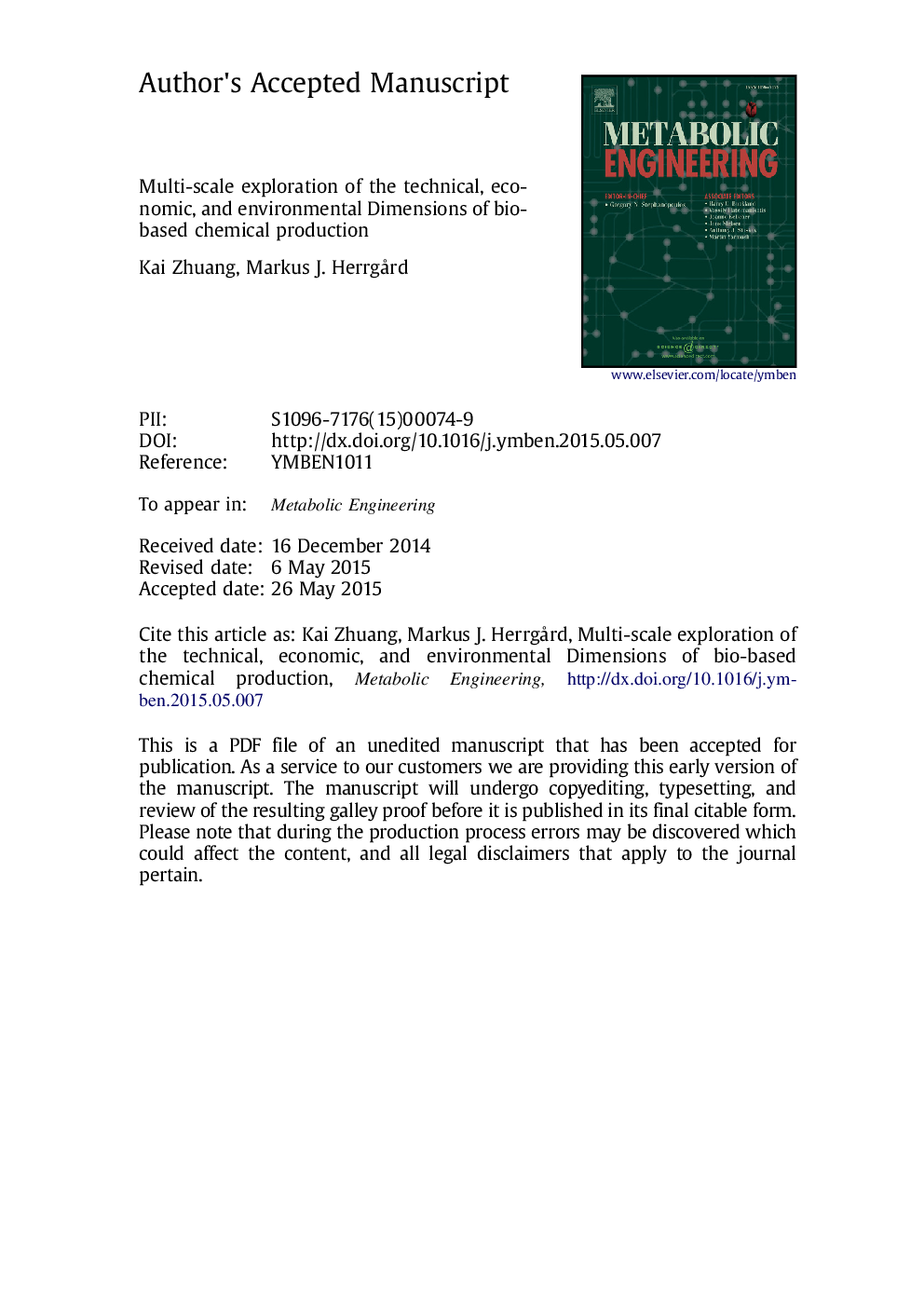| Article ID | Journal | Published Year | Pages | File Type |
|---|---|---|---|---|
| 6494339 | Metabolic Engineering | 2015 | 34 Pages |
Abstract
To address this issue, we have developed a comprehensive Multi-scale framework for modeling Sustainable Industrial Chemicals production (MuSIC), which integrates modeling approaches for cellular metabolism, bioreactor design, upstream/downstream processes and economic impact assessment. We demonstrate the use of the MuSIC framework in a case study where two major polymer precursors (1,3-propanediol and 3-hydroxypropionic acid) are produced from two biomass feedstocks (corn-based glucose and soy-based glycerol) through 66 proposed biosynthetic pathways in two host organisms (Escherichia coli and Saccharomyces cerevisiae). The MuSIC framework allows exploration of tradeoffs and interactions between economy-scale objectives (e.g. profit maximization, emission minimization), constraints (e.g. land-use constraints) and process- and cell-scale technology choices (e.g. strain design or oxygenation conditions). We demonstrate that economy-scale assessment can be used to guide specific strain design decisions in metabolic engineering, and that these design decisions can be affected by non-intuitive dependencies across multiple scales.
Related Topics
Physical Sciences and Engineering
Chemical Engineering
Bioengineering
Authors
Kai H. Zhuang, Markus J. Herrgård,
